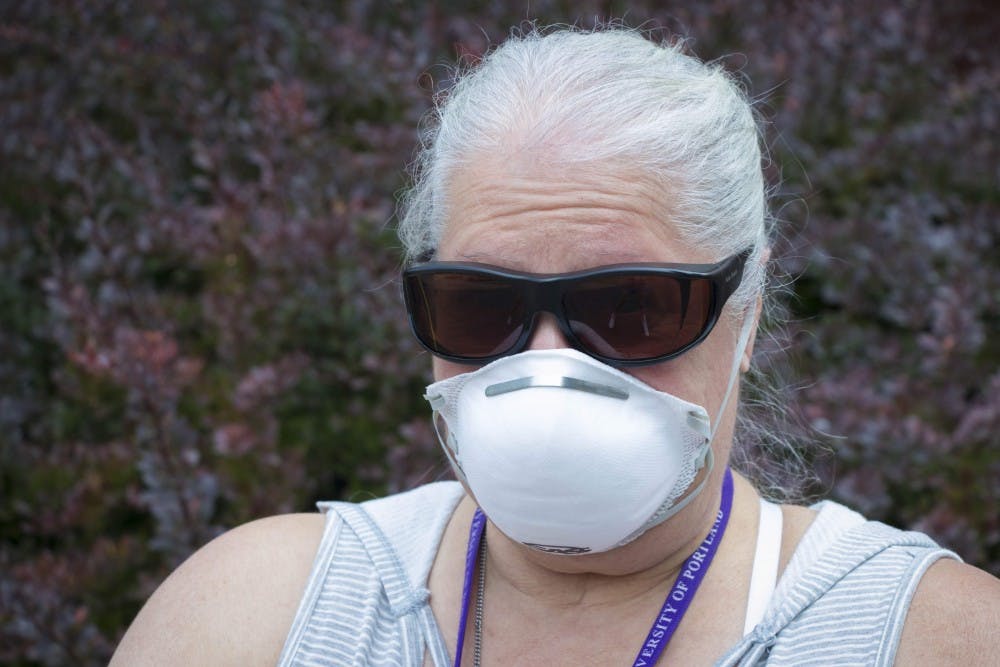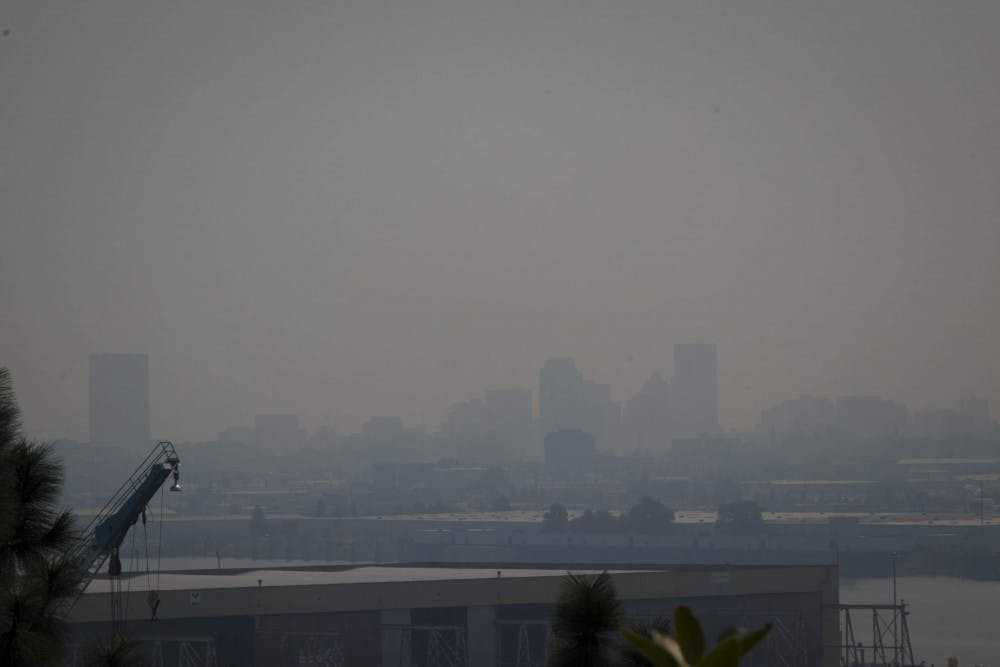Portland’s Air Quality Index (AQI) has reached “unhealthy” levels at 162 as of Wednesday evening, according to the Environmental Protection Agency. The AQI measures the number of pollutants particles in the air. Out of six categories, ranging from “good” at level one and “hazardous” at level six, Portland air is now at a level four.
The EPA advises that everyone should avoid “prolonged or heavy exertion” in the Portland area on their website, AIRNow.
Even with the unhealthy air levels due to smoke from California fires, the games for the men’s and women’s soccer teams on Friday, Aug. 24 are still scheduled, according to Jason Brough, associate athletic director for public relations.
“We have had a couple of soccer practices moved indoors to off-site facilities in the last couple of weeks for precautionary reasons,” Brough said.
NCAA regulations allow athletes to play in practices and competitions in AQI levels below 200.
“Our Sports Medicine staff has been in regular consultation with our medical providers and gives updates to our coaching staff and administration on AQI levels and when to been on alert,” Brough said. Sports Medicine staff will continue monitoring the air quality for now.

Annie Dupuy, University of Portland student, wears a mask to keep from smoke agitating her asthma . Her doctor had told her wearing a mask was best for her health.
According to Kaylin Soldat, a nurse practitioner at the Health and Counseling Center, some people may experience watery or dry eyes, headaches, fatigue or shortness of breath because of the air quality. For others with cardiovascular problems or asthma, their already existing symptoms can become worse.
At the hazardous level, Soldat said everyone should avoid strenuous activity or exercise outside. She also said to make sure doors and windows in homes or dorms are closed to keep the polluted air out.
Wearing surgical masks and bandanas will not keep the pollutants in the air from entering your respiratory system, according to Soldat. The only masks that form a barrier are N95 masks found at hardware stores and online. Soldat said the HCC has a limited amount of N95 masks available for some students.
Claire Desmarais is the News and Managing Editor for The Beacon. She can be reached at desmarai20@up.edu.









